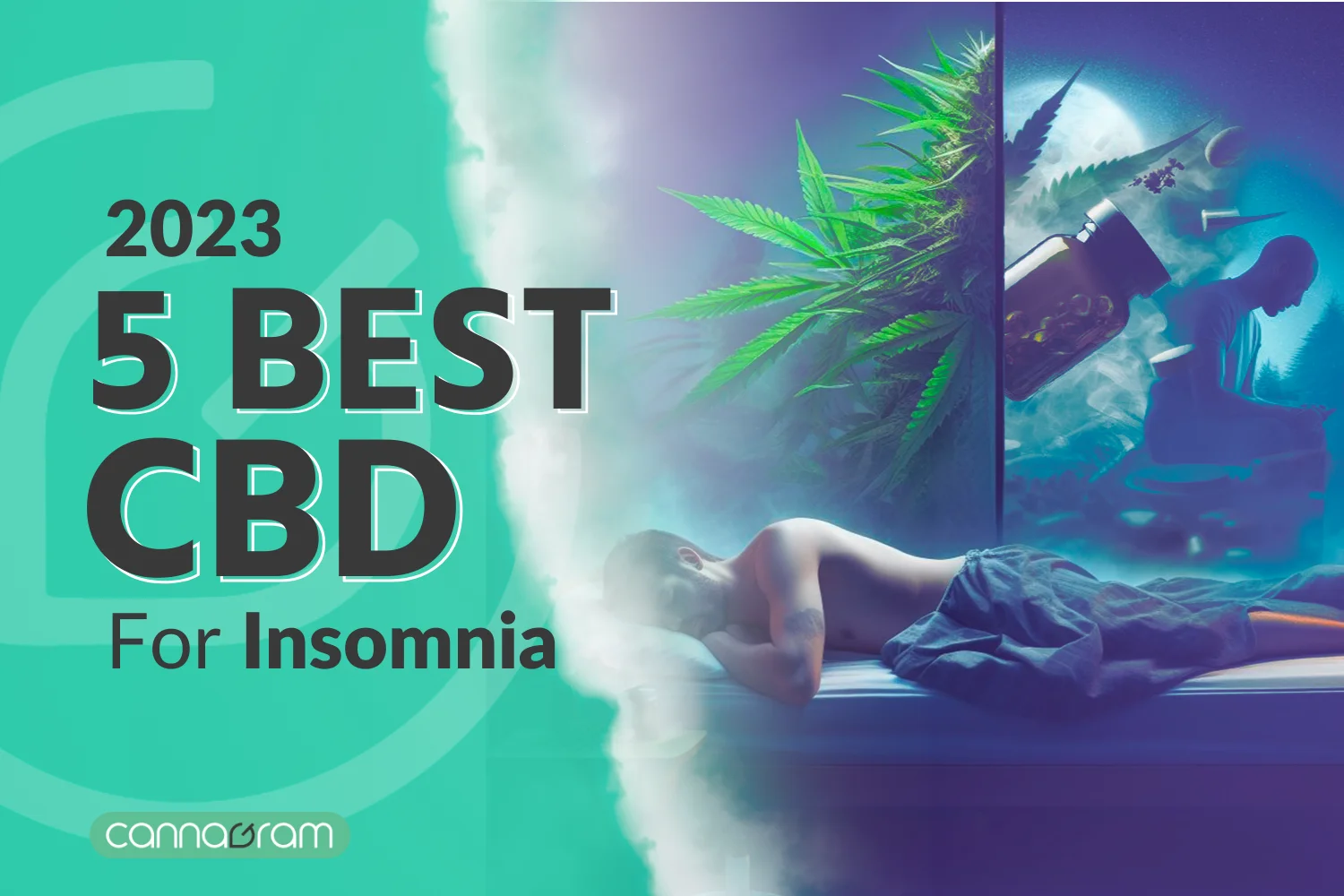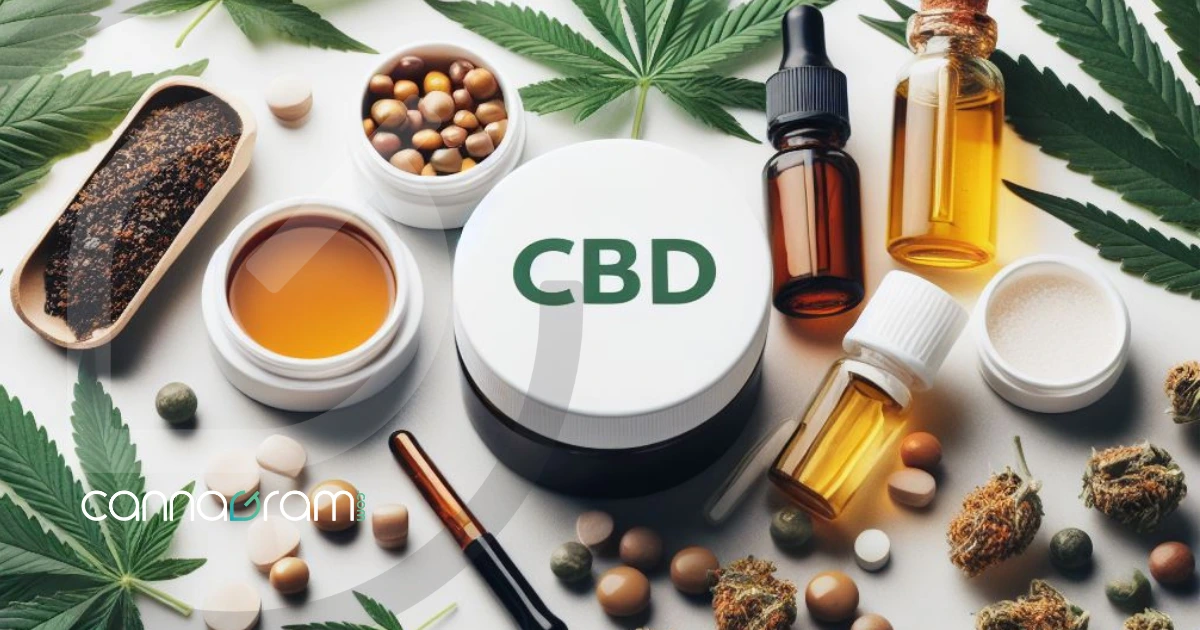CBD For Sleep – 5 Best CBD for Insomnia 2023
Sleep is essential for our overall health and well-being, yet millions of people worldwide struggle with insomnia and other sleep-related issues. In recent years, cannabinoids have gained significant attention for their potential role in improving sleep quality and addressing sleep disorders.
This article will explore the best cannabinoids for tackling insomnia and other sleep problems, providing you with valuable insights to help you achieve a restful night’s sleep.
Start of CBD for sleep research:
The research on CBD for sleep is still in its early stages, but there is some promising evidence to suggest that it may be an effective treatment for insomnia and other sleep disorders.
One study found that CBD helped to reduce the amount of time it took participants to fall asleep and improved their overall sleep quality.
Another study found that CBD was effective in reducing anxiety and stress, which are two common causes of insomnia.
Unraveling CBD for Sleep: Understanding Cannabinoids
Cannabinoids are chemical compounds found in the cannabis plant. They interact with the endocannabinoid system (ECS) in the human body, which plays a crucial role in regulating various physiological processes, including sleep.
While there are over 100 cannabinoids, some of the most promising ones for addressing sleep issues include:
-
CBD (Cannabidiol)
: CBD is a non-psychoactive cannabinoid that has been shown to reduce anxiety and stress, common culprits of insomnia.
-
CBN (Cannabinol)
: CBN is a lesser-known cannabinoid that is thought to have sedative effects.
-
THC (Tetrahydrocannabinol)
: THC is the psychoactive compound in cannabis, known for its euphoric effects. While THC can have sedative properties, it may not be the best choice for everyone, as it can also cause feelings of paranoia or anxiety in some individuals. Strains with a balanced THC-to-CBD ratio or lower-THC options might be more suitable for sleep.
-
CBG (Cannabigerol)
: CBG is another lesser-known cannabinoid that shows potential in addressing sleep disorders. It may help regulate sleep-wake cycles by interacting with receptors in the ECS. CBG also possesses anti-anxiety properties.
-
Delta-8-THC
: Delta-8-THC is a milder form of THC that offers some of the benefits of its more potent counterpart without the intense psychoactive effects. Some users report that delta-8-THC can help them relax and sleep better.
Understanding the Effects of CBD for Sleep
Scientific research has uncovered that CBD plays a pivotal role in promoting a peaceful night’s sleep. It has shown promise in calming the nervous system, affecting the serotonin system, and, in turn, influencing mood. The effects, however, can vary depending on factors such as product type and dosage.
Unlike its psychoactive counterpart THC, CBD doesn’t induce a “high.” Even at higher doses, CBD does not produce the THC-like effects that can cause a change in consciousness. In fact, several studies have even demonstrated CBD’s potential to reduce the psychoactive effects of THC.
Short-term CBD studies have indicated that patients do not experience withdrawal symptoms, making it a potentially safe option for use.
CBD as a Solution for Insomnia
People battling insomnia often find it challenging to fall asleep or stay asleep during the night, causing disruptions in daytime wakefulness, focus, and mood. The anxiety of experiencing inadequate sleep can further intensify insomnia symptoms. Given CBD’s effectiveness in addressing anxiety, there’s speculation that it might also help alleviate the anxiety often associated with insomnia.
Furthermore, ongoing research in the form of a pilot study focusing on CBD and THC’s effects on individuals with physician-diagnosed insomnia aims to provide more insights into how CBD can affect this sleep disorder.
CBD and REM Sleep Behavior Disorder
In REM sleep behavior disorder, individuals speak and make aggressive movements during the rapid eye movement (REM) stage of sleep. This condition predominantly affects older individuals, especially those dealing with neurodegenerative diseases like Alzheimer’s and Parkinson’s. Limited research on four patients with Parkinson’s disease indicated that CBD might help manage the symptoms of REM sleep behavior disorder. Symptoms that previously occurred 2–7 times per week reduced to 0–1 times weekly after CBD treatment. Although these findings are preliminary, they suggest CBD as a potential treatment option for this disorder.
Excessive Daytime Sleepiness and CBD
Excessive daytime sleepiness disrupts a person’s ability to stay awake during typical daytime hours. CBD might offer a solution. While initial animal research provides conflicting results, suggesting that CBD can be both wake-inducing and sedating, further investigation is necessary to understand how CBD impacts wakefulness and sleepiness accurately.
Choosing the Right CBD Dosage for Sleep
The effectiveness of CBD in enhancing sleep appears to be dosage-dependent, meaning that specific dosages might help users fall asleep faster while others might hinder it. Finding the right CBD dosage for sleep might depend on your individual tolerance. It is advisable to start with a small amount and gradually increase the dosage, much like the approach taken when using CBD to treat epilepsy. If you’re considering using CBD for sleep, it’s crucial to communicate with your healthcare provider, particularly if you’re taking other supplements or medications, to prevent potential interactions and ensure your safety.
Choosing the Right Cannabinoid (Cbd for Sleep)
Selecting the right cannabinoid for your sleep needs can be a nuanced process. Factors to consider include your specific sleep issue, tolerance to cannabinoids, and any potential side effects.
If you’re new to cannabinoids, it’s advisable to start with CBD, as it is well-tolerated and non-intoxicating. CBD can help address anxiety and stress, which are common contributors to insomnia.
For those who have more experience with cannabinoids and are seeking a sedative effect, CBN or a balanced THC-to-CBD product may be worth exploring.
It’s crucial to consult with a healthcare professional before incorporating cannabinoids into your sleep routine, especially if you’re currently taking medications or have underlying health conditions.
Methods of Consumption
Cannabinoids can be consumed in various forms, and the method you choose can affect their onset and duration. Common consumption methods include:
-
Oral:
CBD oil or tinctures can be taken sublingually (under the tongue) and offer a relatively fast onset. Edibles can provide long-lasting effects but may take longer to kick in.
-
Inhalation:
Vaping offers quick relief but may not be suitable for everyone due to potential lung concerns.
-
Topical:
Creams and balms can be applied directly to the skin and can be useful for localized discomfort that might interfere with sleep.
-
Sublingual:
Dissolvable strips offer a discreet and convenient way to take cannabinoids, with relatively fast absorption through the sublingual mucosa.
Safety and Side Effects of CBD
Using CBD for sleep is generally considered safe, although long-term effects are still being studied. Common side effects are typically mild and may include dry mouth, diarrhea, sleepiness, loss of appetite, and low blood pressure. Since CBD is metabolized in the liver, research is ongoing to understand its potential impact on this organ, especially in people taking Epidiolex, an anti-seizure medication. The safety of combining over-the-counter medications with CBD is still uncertain, so it’s recommended to consult your doctor if you intend to try it. Ongoing research is also examining how CBD affects specific populations, such as older individuals, children, and pregnant individuals. It’s important to be cautious of misleading claims on the market, as the government does not regulate CBD production, potentially leading to contaminated or low-quality products. While much remains unknown about CBD, researchers suggest it may be safer than other drugs due to the absence of reported overdoses or significant issues.
If you’re considering CBD for sleep, it’s essential to consult your healthcare provider. They can provide guidance based on your medical history and help you navigate the benefits and potential risks of CBD.
Frequently Asked Questions About CBD for Sleep
1- When is the Best Time to Take CBD for Sleep?
The optimal time for taking CBD to improve sleep has not been conclusively defined. While some studies have offered CBD capsules after dinner, it’s unclear if this is the best timing. You may need to experiment to find the most effective schedule for you.
2. What is the Recommended CBD Dosage for Falling Asleep?
A few studies suggest that CBD dosages ranging from 300 to 600 milligrams can help manage anxiety and induce sleepiness. The FDA is actively researching safe long-term dosage recommendations.
3. Which Form of CBD is Best for Sleep – Gummies, Vaping, or Capsules?
It’s uncertain whether one form of CBD is superior to another due to the lack of regulation in the CBD industry. The quality of CBD products can significantly vary, making it difficult to determine the most effective form. While vaping CBD remains under-researched, studies on nicotine vapes highlight potential dangers. For your safety, consult your healthcare provider before trying CBD vaping.
4. Can CBD Interact with Over-the-Counter Medications?
The interactions between over-the-counter medications and CBD are not well understood. To ensure safety, it’s advisable to discuss your CBD use with your healthcare provider before combining it with any other medications.
5. Is CBD Safer than Other Medications for Sleep Disorders?
There is limited data regarding the safety of CBD for sleep compared to other drugs used to treat sleep disorders and health conditions. However, CBD has not been linked to overdose or severe side effects, which some experts consider an advantage.
Sacramento, CA: We Bring the Mood!
Picture receiving the finest cannabis products in the fastest and most discreet way possible, all at your fingertips. With Cannagram, it’s a reality. Our dedicated team is committed to ensuring your products reach you efficiently and discreetly, providing the convenience you deserve.
But the Cannagram experience doesn’t end with just quality delivery. As our valued customer, you become part of our Advantage Club, where you’ll enjoy daily exclusive discounts and promotions. We’re committed to making your cannabis journey even more satisfying.
At Cannagram, we take quality, safety, and customer commitment seriously. Our extensive product range caters to various preferences and needs, ensuring you find precisely what you’re looking for.
So, if you’re in Sacramento and seeking the best cannabis product experience, look no further. Join the Cannagram community and discover a world of quality, convenience, and amazing benefits. We look forward to serving you and making your cannabis journey truly memorable. Welcome to Cannagram, We Bring the Mood! CLICK HERE AND VISIT THE SHOP Or follow our main social networks on footer links.
Conclusion
In conclusion, CBD for sleep shows significant promise in helping individuals manage insomnia and other sleep-related issues, and it is generally regarded as safe. However, as research is still ongoing, it’s essential to stay informed about the latest findings and consult a healthcare professional before integrating CBD into your sleep routine. While CBD offers a potential natural solution for sleep issues, it should be seen as part of a holistic approach to sleep hygiene and overall well-being.
Sweet dreams!
Disclaimer: This article is for informational purposes and should not be considered medical advice. Always consult with a healthcare professional before using cannabinoids or making changes to your sleep routine.
References:




